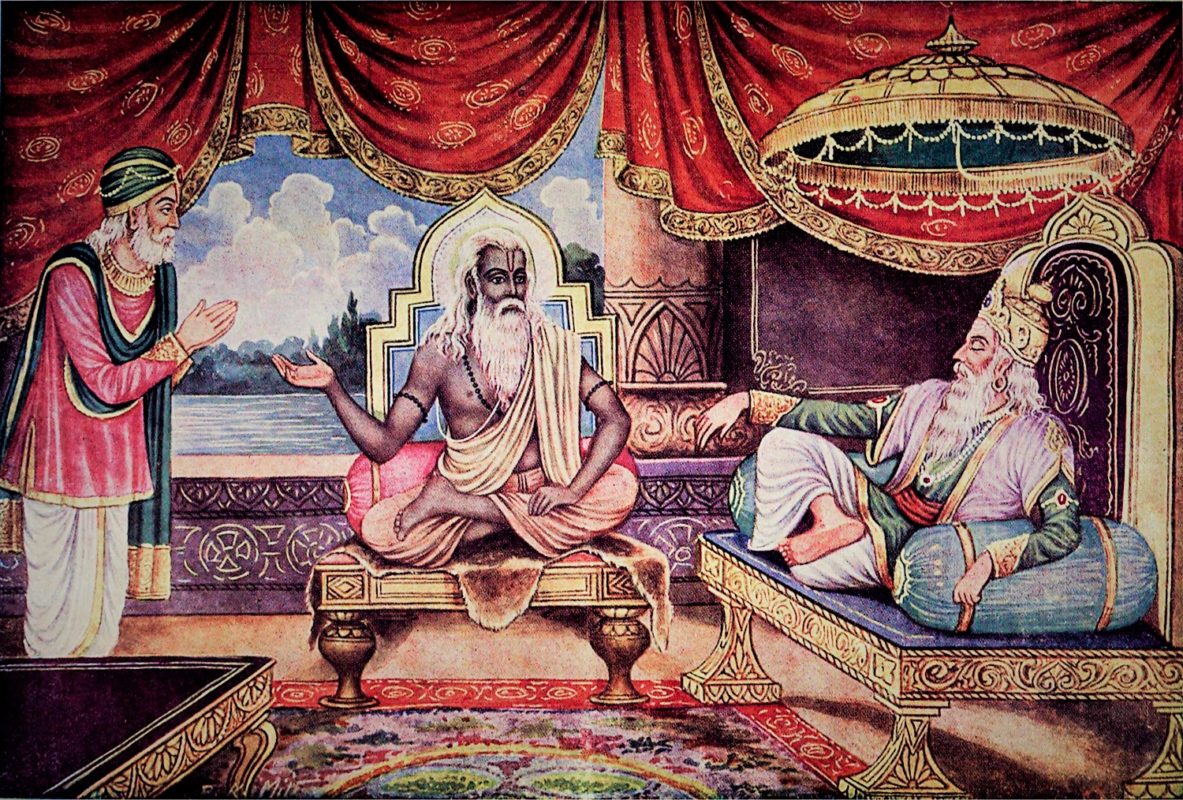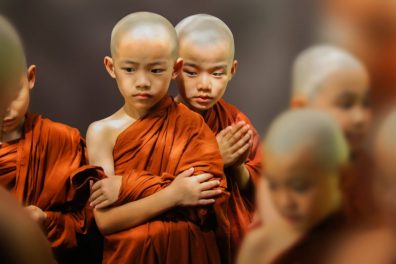The Upanishads, India’s greatest spiritual treasures, are the culmination of the wisdom of the Vedas which contain the wellspring of profound philosophy of self-discovery and have influenced the writings of Gurdjieff, Kahlil Gibran, Thoreau and Emerson, Schopenhauer, Nietzsche, Tao Te Ching, Dhammapada, Thich Naht Hanh etc.
When all the senses are stilled, when the mind is at rest, when the intellect wavers not–then, say the wise, is reached the highest state. This calm of the senses and the mind has been defined as yoga. He who attains it is freed from delusion.
– Katha Upanishad 2.6.10-11
When it comes to Upanishads, simply leaping into the texts is likely to be highly confusing which is why the ten for which Adi Sankara gave commentaries are recommended. They make the most impact when learned under great masters. Here is the list I gathered from Sri Paramarthananda (a disciple of Sri Dayananda Saraswati of Chinmaya order). The Upanishads are recommended to be read in the order listed below:
-
Mundaka Upanishad
-
Kena Upanishad
-
Katha Upanishad
-
Kaivalya Upanishad (No Sankara Bhashyam available)
-
Taittiriya Upanishad
-
Mandukya Upanishad
-
Chandogya Upanishad
-
Brhadaranyaka Upanishad
-
Isavasya Upanishad
-
Prasna Upanishad
-
Aitareya Upanishad
-
Svetasvatara Upanishad
The wise one perceives one’s own higher Self in all, and all in one’s own higher Self. Therefore, he does not hate or injure anyone. Such a person loves everybody as one loves God.
– Ishavashya Upanishad 1:6





